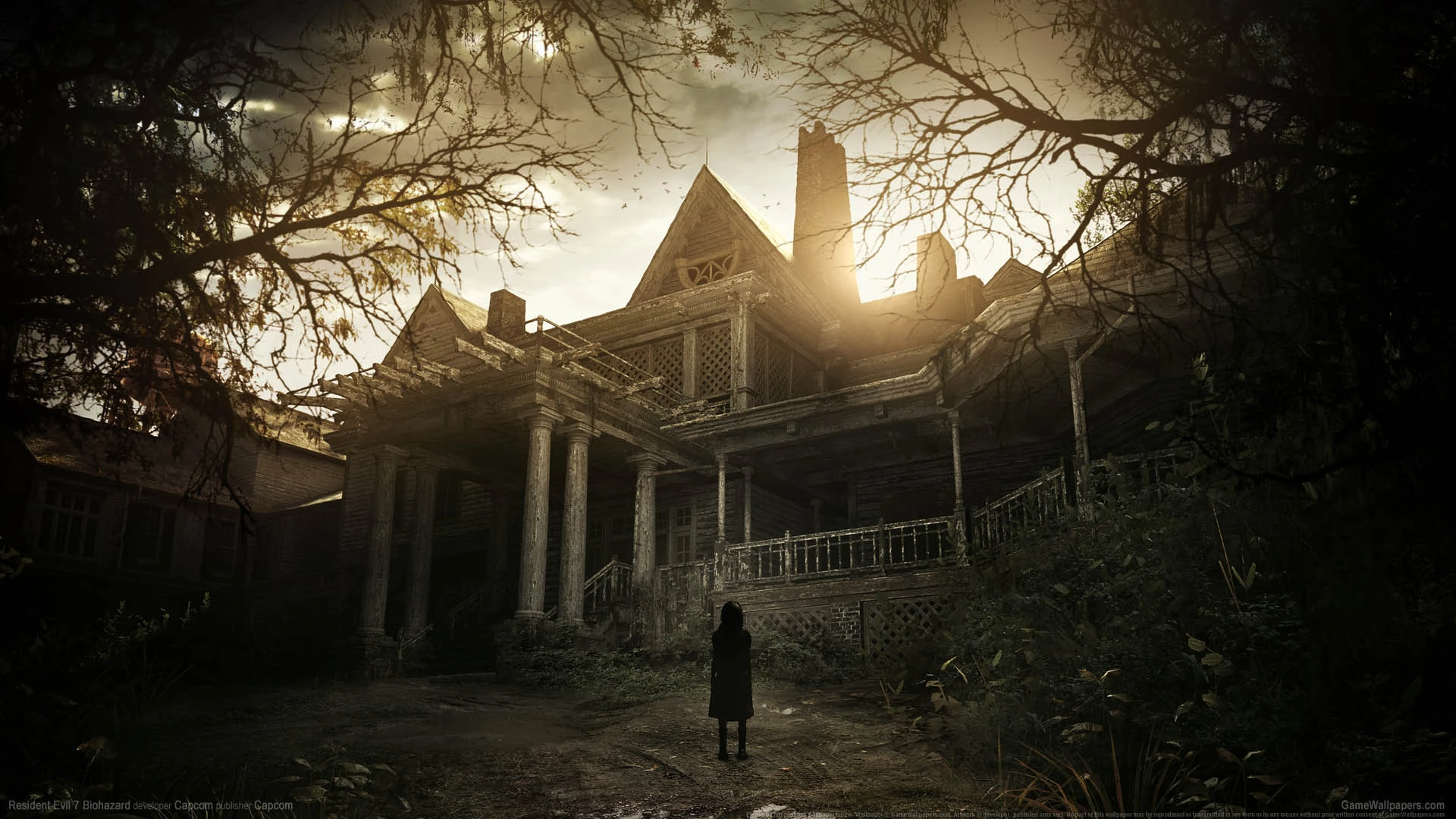
This is the least spooky picture from the game I could find. You're welcome.
Let’s take a break from programming to talk about one of my favorite franchises in gaming, Resident Evil. It’s had a renaissance, one that demonstrates something important about modern video games and the internet itself. Even if you don’t like Resident Evil or video games at all, the story behind RE7 is worth reading, because of what it says about how the internet has changed commerce itself.
Background
Resident Evil is a series of survival horror games. The first game came out for PlayStation 1 in 1996. They are scary and silly, something I find tremendously endearing.
As the longest-running and most popular horror series in gaming, Resident Evil seems on top of the world.
And yet, about 7 years ago, the franchise looked like it was in trouble. During the 2000s and 2010s, game developers realized ongoing multiplayer experiences could be exponentially more profitable than finite singleplayer games. A fixed-price singleplayer game can only ever make $60 of revenue. Fortnite, on the other hand, lets you buy as many skins as you want, forever.
Horror games have never been good at multiplayer. Scaring the player requires carefully designed environments with enemies ready to jump out at just the right moment. Pacing, music, art and gameplay have to come together so that the player’s nerves are frayed as much as possible without, you know, being so scary it’s unplayable.
That kind of high authorship is hard to achieve in a multiplayer game. Imagine spending months designing a scary corridor with zombies hidden in just the right places. Then, when a player walks down it, they’re arguing with their buddy on voice chat and don’t even see the zombies jump out at them.
Scary good sales
When Resident Evil 7 released in January 2017, it seemed destined to be another nail in the coffin of singleplayer and horror games. By April, developer Capcom was telling the press RE7 failed to meet sales expectations by moving only 3.5 million units.
Capcom executives were used to games selling most of their copies in the first few weeks after release. That was the conventional wisdom! You had to spend a bunch of money on marketing to earn the coveted top spots on GameStop’s shelves, and you got bumped by the next New Game two weeks later. If your game didn’t sell well at release, it never would.
But then, a funny thing happened.
In 2018, Resident Evil 7 sold another million copies. In 2019, another million. Same for 2020 and 2021. By 2021, Capcom was thrilled with its sales. As of December 2023, it’s hit 13 million units.
As Capcom Europe COO Stuart Turner put it:
Day one sales are still super important for us and all our retail partners, but something that has become increasingly apparent over the past five, ten years is that the digitisation of the industry has extended the lifecycle of a product infinitely. It’s no longer just about the sales in the first few weeks and months then fighting for a rapidly shrinking ‘shelf space’ with the hundreds of thousands of other releases. We know quality sells and keeps selling for many, many years.
Resident Evil 7 came out in a world where most customers buy games from digital storefronts, not stores. There is infinite shelf space on Steam!
New world
Resident Evil 7’s second life is thrilling, and not just because I love those games and want them to continue (though that helps). It’s exciting because it exemplifies how the internet has fundamentally shifted economics in two ways for every industry.
- Products have more shelf life. It’s not like the old days where a big box store would bump you from the shelf to make room for the new release. You can keep selling forever.
- You can be more niche. Products don’t have to appeal to the median shopper. You just have to find the 13 million people who like silly and scary horror games.
It’s a brand new world out there, and we’re about to see something wonderful.